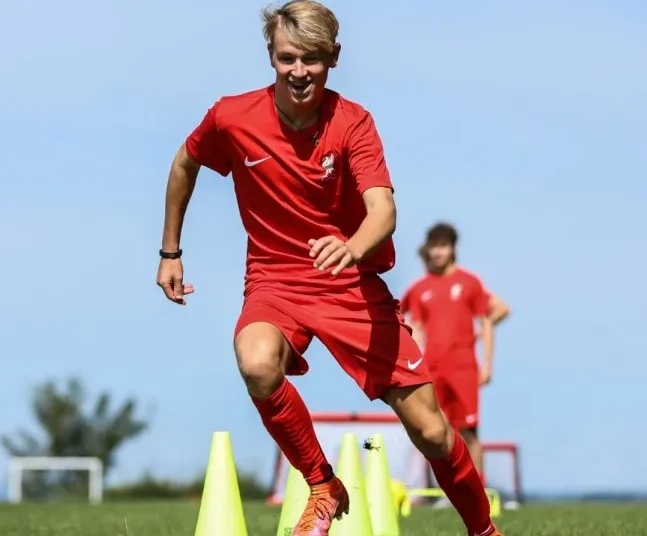As a young soccer player, it can be daunting to think about the number of skills and qualities you need to excel in the game. However, successful players share certain key traits that set them apart. If you’re looking to take your game to the next level, focusing on these essential characteristics can make all the difference.
1. Personal Accountability
Personal responsibility is foundational for success in soccer. Are you proactive about improving your skills, or do you wait for others to motivate you? While external encouragement is helpful, ultimately, the drive to succeed must come from within. When challenges arise, do you place blame elsewhere or take action to improve yourself? Players who embrace a growth mindset and focus on what they can control are the ones who thrive on and off the field.
2. Strong Technical Skills
To succeed at soccer, you need to be proficient in the technical aspects of the game. Are you comfortable making quick decisions under pressure and using both feet? Dribbling, passing, and shooting are core skills that require continuous practice. A high level of technical ability allows you to perform well in a variety of situations, making you more effective in games. The more time you dedicate to honing these skills, the better you’ll be on the field.
3. Game Awareness and Quick Decision-Making
Being aware of your surroundings and making smart decisions quickly is vital to becoming a top player. It’s not enough to have great technical skills—you must also be able to read the game. Are you scanning the field before receiving the ball? At higher levels of competition, waiting until the ball arrives to assess the situation is too late. Great players anticipate the game’s flow and position themselves accordingly. Watch footage of both your games and professional matches to learn how top players make decisions and position themselves.
4. Grit
In soccer, grit is the combination of perseverance and passion for the game. It’s about staying resilient even when things get tough—whether in training, during a game, or over the course of a season. Do you bounce back after mistakes? Elite players keep fighting, even when the odds are against them. They don’t shy away from challenges; they face them head-on and continue pushing forward.
5. Mental Focus
The mental side of the game is just as important as the physical one. Elite players have an intense focus that allows them to make smarter decisions and play with higher game intelligence. Being able to focus ensures that you can execute well in training and during games. Without focus, your effectiveness drops, and it becomes harder to stay sharp on the field. Maintaining a strong mental focus is key to improving as a player and contributing to your team’s success.
6. Physical Fitness
Physical ability plays a major role in soccer. While physical development can vary depending on when players hit puberty, it’s essential to work on coordination, balance, and fitness—both with and without the ball. Physical fitness is critical to handling the demands of the game. However, physical attributes alone won’t guarantee success. As you develop, focus on sharpening your mental and technical skills, as these will ultimately carry you further than physical strength alone.
7. Work Rate and Effort
A player’s work rate is often a key indicator of their commitment. Players who cover more ground and are constantly involved in the game make a huge impact on their team. Take a cue from professionals like Xavi, who displayed unmatched work ethic during high-stakes matches. Work rate isn’t just about running fast; it’s about working smart—pressuring opponents, making intelligent runs, and giving your best in every drill, practice, and game. This effort combined with game intelligence is what separates good players from great ones.
8. Communication and Teamwork
Soccer is a team sport, and effective communication is crucial. Being able to interact positively with your teammates, both verbally and non-verbally, is key to building strong team dynamics. Communicating on the field helps organize the team, call for passes, and alert others to dangers. Non-verbal communication, such as showing leadership through body language and attitude, also plays a big role. Your actions often speak louder than words, and leading by example boosts morale and helps your team stay motivated.
Conclusion
While technical skills and physical ability are important, many of the traits that lead to success in soccer are not soccer-specific at all. Personal responsibility, grit, focus, and strong interpersonal skills are all qualities that will help you both on and off the field. Developing these characteristics alongside your soccer skills will put you on the path to becoming not only a better player but also a more resilient and well-rounded person. Success in soccer, as in any field, requires dedication, hard work, and the commitment to constantly improve.














